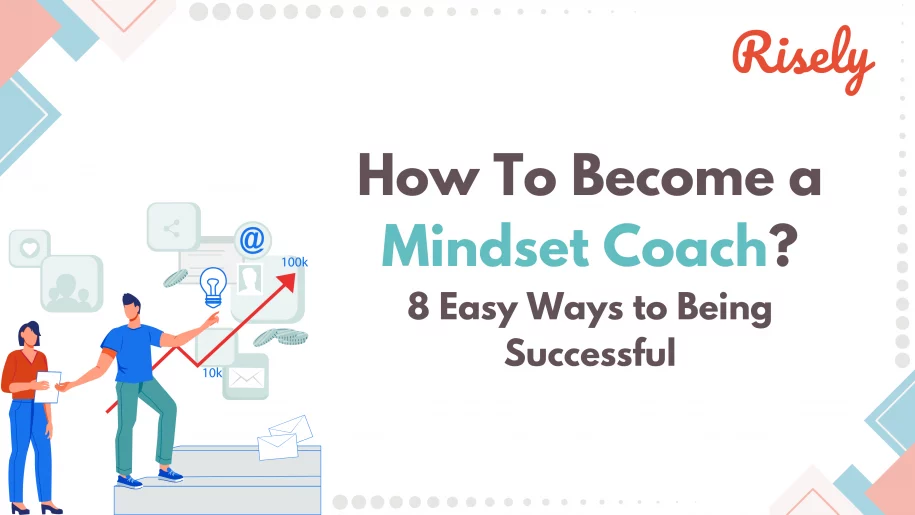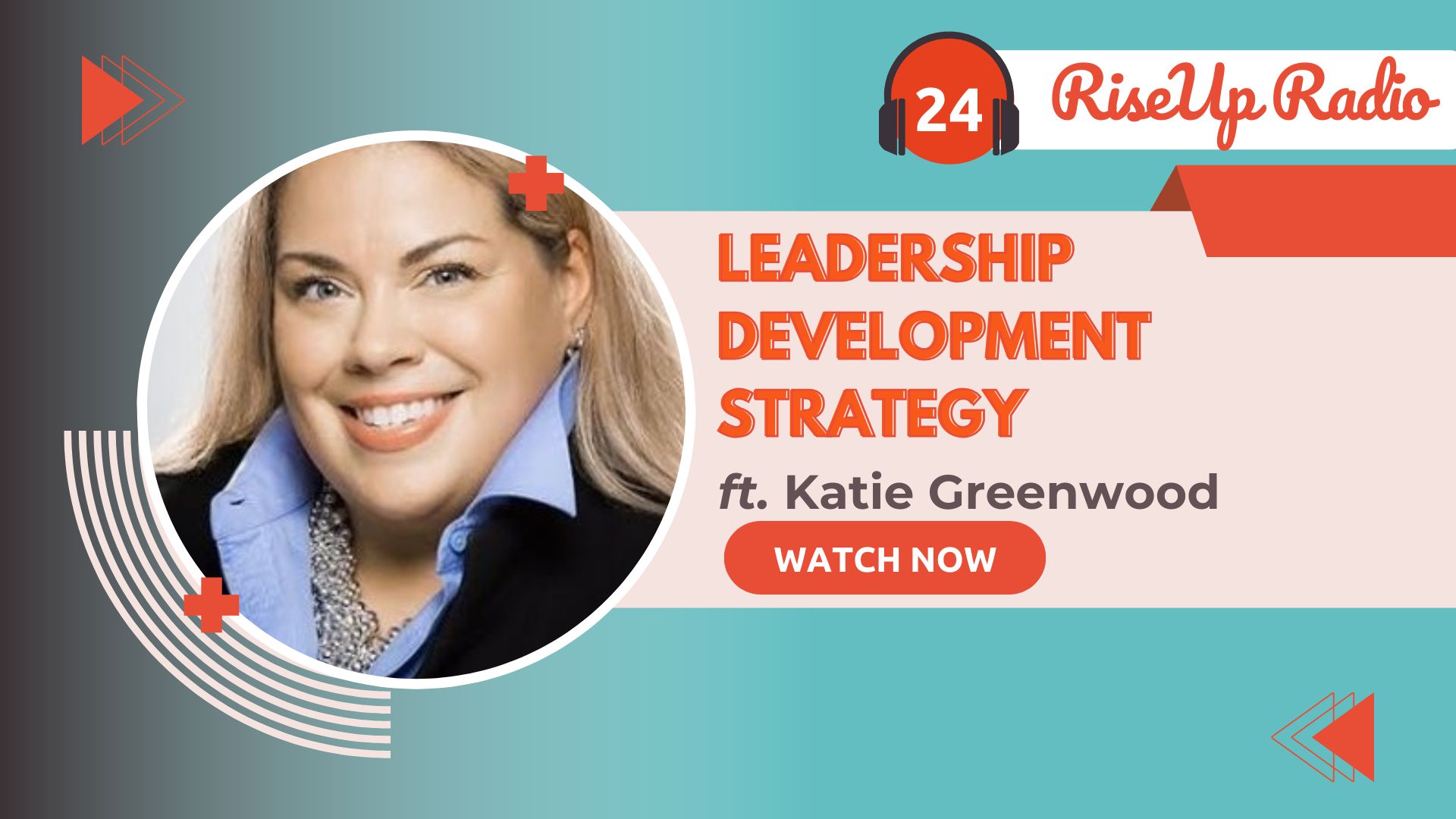How To Become a Mindset Coach? 8 Easy Ways to Being Successful
In a society where the landscape of personal development is ever-evolving, the role of a mindset coach has emerged as a vital catalyst for transformation. Becoming a mindset coach is not merely a career choice; it’s a commitment to facilitating profound shifts in individuals’ perspectives, beliefs, and lives. At its core, mindset coaching transcends traditional coaching paradigms by honing in on the power of the mind—the epicenter of our thoughts, emotions, and behaviors. As we embark on this exploration into the realm of mindset coaching, we delve into the essence of what it means to guide individuals toward a mindset rooted in growth, resilience, and abundance. Join me as i take you through what is a mindset coach, what does a mindset coach do and how to become a mindset coach. It is a journey of self-discovery, continuous learning and unlearning, and this can be your first step in becoming a great mindset coach.What is a mindset coach?
A mindset coach is a professional who specializes in helping individuals cultivate a positive and growth-oriented mindset. They serve as guides and mentors, supporting their clients in overcoming self-limiting beliefs, fostering resilience, and embracing change with confidence and determination. Mindset coaches work closely with their clients to identify and challenge negative thought patterns, develop strategies for achieving personal and professional goals, and cultivate a mindset conducive to growth and success. They provide support, accountability, and personalized guidance to empower individuals to navigate challenges, unlock their true potential, and live fulfilling lives. In essence, a mindset coach helps individuals harness the power of their minds to create positive shifts in their lives, enabling them to overcome obstacles, pursue their passions, and achieve their aspirations. They draw upon various techniques and approaches, including cognitive restructuring, goal setting, visualization, and mindfulness practices, to facilitate transformative change and personal growth.Mindset coach vs. Life coach
Here’s a comparison between a mindset coach vs life coach: Growth Mindset Coach:- Focus: A growth mindset coach specializes in helping individuals cultivate a mindset geared toward growth, resilience, and learning.
- Emphasis: They focus on mindset shifts, cognitive restructuring, and overcoming self-limiting beliefs to foster personal and professional development.
- Techniques: Growth mindset coaches often utilize strategies such as reframing negative thoughts, setting stretch goals, and embracing challenges as opportunities for growth.
- Goals: Their primary goal is to empower individuals to develop a growth mindset, enabling them to thrive in adversity and pursue their goals confidently and continuously.
- Scope: A life coach addresses various personal and professional challenges, including career transitions, relationships, time management, and overall life satisfaction.
- Holistic Approach: They take a holistic approach to coaching, considering various aspects of an individual’s life and helping them create balance, clarity, and fulfillment.
- Techniques: Life coaches employ goal setting, action planning, accountability, and motivation strategies to support their clients in achieving their desired outcomes.
- Goals: Their goals may include helping clients clarify their values and priorities, overcome obstacles, and create a roadmap for success and fulfillment in all areas of life.
What does a mindset coach do?
A growth mindset coach is dedicated to helping individuals cultivate a growth-oriented mindset characterized by resilience, optimism, and a belief in the power of effort and learning. Here’s what a mindset coach do:- Assessment: They start by assessing the individual’s current mindset, identifying areas where a fixed mindset may hold them back and areas where a growth mindset can be further developed.
- Goal Setting: Growth mindset coaches work with their clients to establish clear, achievable goals that align with their aspirations and values. These goals serve as a roadmap for growth and development.
- Mindset Shift: They help individuals recognize and challenge self-limiting beliefs and negative thought patterns, encouraging them to adopt a more growth-oriented perspective. This involves reframing challenges as opportunities for learning and embracing setbacks as part of the growth process.
- Skill Development: Growth mindset coaches assist individuals in developing essential skills such as resilience, perseverance, and adaptability. They provide strategies and techniques for overcoming obstacles, managing setbacks, and staying motivated in adversity.
- Feedback and Reflection: They encourage a culture of feedback and reflection, helping individuals learn from successes and failures. By providing constructive feedback and facilitating reflective practices, growth mindset coaches support continuous learning and improvement.
- Accountability: They hold individuals accountable for their growth goals, providing support and encouragement. This accountability helps individuals stay focused, motivated, and committed to their personal and professional development journey.
How to become a mindset coach?
The Becoming a mindset coach involves a combination of education, training, practical experience, and personal development. Here’s a step-by-step guide on how to become a mindset coach:- Self-Assessment: To become a mindset coach start by assessing your own mindset and identifying areas where you excel and where you could improve. Reflect on your own experiences with overcoming challenges, learning from setbacks, and embracing growth opportunities.
- Gain Knowledge and Expertise: Invest in your education by studying psychology, coaching methodologies, and mindset principles. Consider pursuing formal education such as a degree in psychology, counseling, or coaching, or enroll in specialized courses or workshops focused on mindset coaching.
- Develop Coaching Skills: Acquire essential coaching skills such as active listening, powerful questioning, empathy, and goal setting. Explore different coaching models and techniques, and practice applying them in coaching scenarios or role-playing exercises.
- Gain Experience: Another important thing to become a mindset coach gain practical experience by working with clients, either through internships, volunteer opportunities, or entry-level coaching positions. Offer your coaching services to friends, family members, or colleagues to gain experience and build your coaching portfolio.
- Obtain Certification: Consider pursuing certification through reputable coaching programs or organizations. Look for programs that offer comprehensive training in mindset coaching, provide mentorship and supervision, and require a demonstration of coaching competency through exams or assessments.
- Specialize: Consider specializing in a specific niche or area of expertise within mindset coaching, such as leadership development, resilience training, or personal growth. Specializing can help you differentiate yourself in the coaching market and attract clients who are seeking expertise in your area of specialization.
- Build Your Coaching Practice: Once you’ve gained the necessary education, training, and experience, start building your coaching practice. Create a professional website, establish a presence on social media, and network with potential clients and referral sources. Consider offering workshops, webinars, or online courses to reach a wider audience and showcase your expertise.
- Continued Learning and Growth: Apart from everything else, one highly essential thing to become a mindset coach is to stay updated on the latest research, trends, and best practices in mindset coaching through continuous education and professional development. Attend conferences, workshops, and seminars, and seek out opportunities for ongoing learning and networking within the coaching community.
Essential Skills for a mindset coach
Here are four top skills required to become a mindset coach:- Active Listening: Active listening is foundational for any coach, including growth mindset coaches. It involves fully concentrating, understanding, responding, and remembering what is being said by the client. As a growth mindset coach, active listening allows you to empathize with your clients, understand their perspectives, and uncover underlying beliefs or barriers to growth.
- Powerful Questioning: Effective questioning is key to facilitating self-discovery and fostering growth in coaching sessions. Growth mindset coaches use powerful questions to challenge clients’ assumptions, stimulate reflection, and encourage new perspectives. By asking thought-provoking questions, coaches can help clients explore their mindset, set meaningful goals, and develop strategies for growth.
- Empathy and Compassion: Empathy and compassion are essential for building trust and rapport with clients in coaching relationships. Growth mindset coaches demonstrate empathy by understanding and validating clients’ experiences, emotions, and challenges without judgment. By cultivating a supportive and non-judgmental environment, coaches empower clients to explore their mindset and confidently overcome obstacles.
- Flexibility and Adaptability: Flexibility and adaptability are vital skills for navigating coaching relationships’ dynamic and ever-changing nature. Growth mindset coaches must be able to adapt their coaching approach to meet the unique needs, preferences, and goals of each client. By remaining flexible and open-minded, coaches can tailor their coaching style, techniques, and strategies best to support clients on their journey of growth and development.
Helpful books for mindset coaches
Each of these books offers valuable insights and practical guidance for the ones aspiring to become a mindset coach, providing a wealth of knowledge to support personal growth, resilience, and success. Incorporating the wisdom from these books into your coaching practice can empower you to make a profound difference in your clients’ lives.- “Mindset: The New Psychology of Success” by Carol S. Dweck – In this book, Dweck explores the concept of mindset and its impact on success. She distinguishes between fixed and growth mindsets and offers practical strategies for cultivating a growth mindset, empowering individuals to embrace challenges and achieve their goals through dedication and effort.
- “The Power of Now: A Guide to Spiritual Enlightenment” by Eckhart Tolle – The Power of Now is a guide to mindfulness and living in the present moment. Through accessible teachings, Tolle invites readers to break free from past regrets and future anxieties, fostering inner peace and personal transformation.
- “Atomic Habits: An Easy & Proven Way to Build Good Habits & Break Bad Ones” by James Clear – James presents a practical framework for habit formation and behavior change. Clear emphasizes the power of small actions and offers actionable advice for building positive habits and breaking free from destructive ones.
- “Grit: The Power of Passion and Perseverance” by Angela Duckworth – The “Grit” explores the role of passion and perseverance in achieving success. Drawing on research, Duckworth demonstrates how grit is essential for overcoming obstacles and reaching long-term goals, offering insights and strategies for cultivating this quality.
- “The Four Agreements: A Practical Guide to Personal Freedom” by Don Miguel Ruiz – This book presents a code of conduct for personal freedom. Ruiz offers four simple agreements for living a life of authenticity and happiness, inviting readers to break free from self-limiting beliefs and unhealthy patterns of behavior.
Conclusion
A mindset coach believes in every individual’s innate potential and is committed to helping them unleash that potential by cultivating a mindset of possibility, resilience, and abundance. It’s evident that the journey to become a mindset coach is both profound and rewarding. It’s not just about acquiring skills or mastering techniques—it’s about embodying empathy, fostering growth, and empowering individuals to reach their full potential. By embracing the principles of growth mindset, resilience, and self-awareness, mindset coaches create transformative spaces where clients can thrive. Whether it’s challenging self-limiting beliefs or guiding clients toward their goals, the impact of a mindset coach extends far beyond the coaching session. As you embark on your own path toward becoming a mindset coach, remember the power you hold to inspire change and foster growth in others.Ace performance reviews with strong feedback skills.
Master the art of constructive feedback by reviewing your skills with a free assessment now.
Other Related Blogs
Building an Ultimate Leadership Development Action Plan
How to Build a Leadership Development Action Plan? Having a strong Leadership Development Action Plan is more critical than ever in today’s evolving business world. Whether you’re looking to drive…
Leadership Journey Examples on the RiseUp Radio Podcast
Leadership Journey Examples on the RiseUp Radio Podcast Leadership isn’t a destination – it’s a journey filled with twists, turns, and transformative moments that shape not just careers, but entire…
What is Immersive Learning? A New Era in Education
In this blog, you’ll learn what is immersive learning and how it is changing training, increasing engagement, and influencing the future of workforce development. … Read More
What are Learning Designs? All You Need To Know
This blog explains what learning designs are in depth while also covering it’s key components. It tells you about the process involved in creating a good learning design along with…


